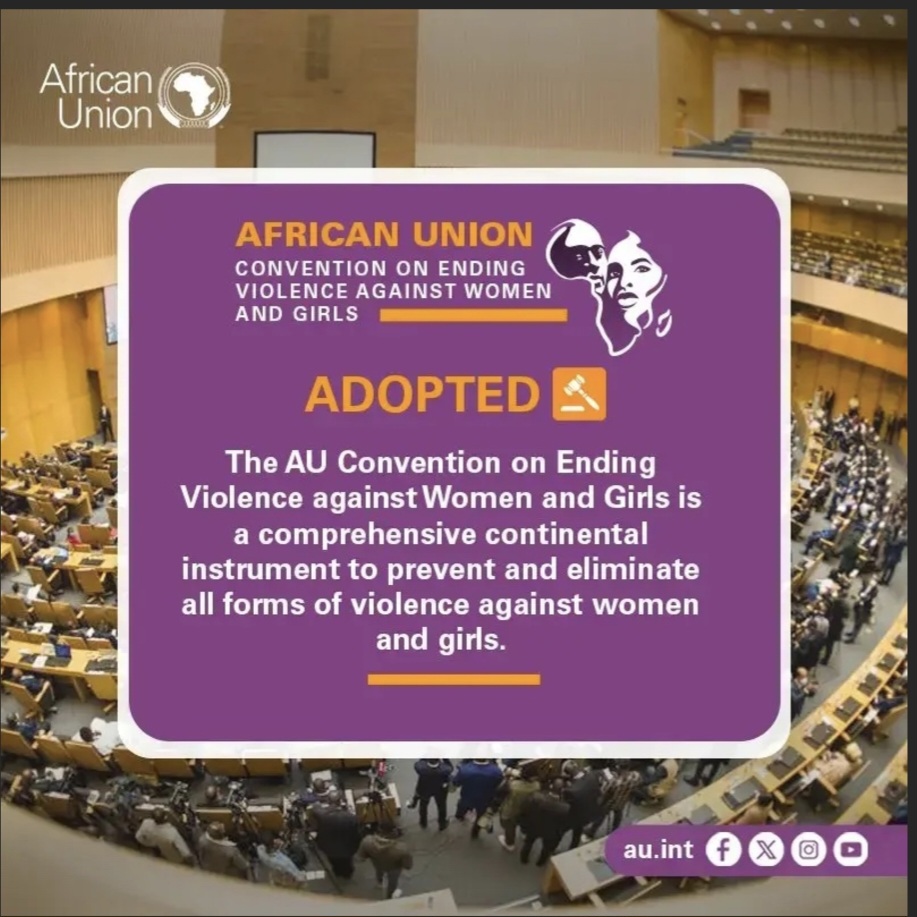Women’s advocacy organization is pressing the Liberian government to move swiftly from signing to ratifying a groundbreaking African Union convention aimed at ending violence against women across the continent.
The African Women Leaders Network-Liberia Chapter congratulated the Ministry of Foreign Affairs this week for signing the African Union Convention on Ending Violence Against Women, known as CEVAWG, but stressed that ratification represents the critical next step toward meaningful change.
“The Liberia Chapter stands ready to continue its support and contribution to ensuring the implementation of the CEVAWG, once ratified,” the organization said in a statement, underscoring the gap between symbolic gestures and binding legal commitments.
Liberia joins just five other African Union member states as early signatories to the convention, a distinction that reflects the West African nation’s complex relationship with women’s rights leadership on the continent. The country was led by Ellen Johnson Sirleaf, Africa’s first elected female president, from 2006 to 2018, and has maintained a prominent voice in regional women’s advocacy efforts.
The convention’s origins trace back to 2021, when Sirleaf, now serving as patron of the African Women Leaders Network, challenged African heads of state to move beyond rhetoric on gender-based violence. Speaking through then-African Union Chair Cyril Ramaphosa of South Africa, she called for concrete action and accountability measures.
That appeal sparked an unusual response from the continent’s male leadership: a series of three presidential summits focused on “Positive Masculinity,” an initiative aimed at engaging men in efforts to combat violence against women. The summits ultimately led to the drafting and adoption of CEVAWG earlier this year.
For women’s rights advocates, the convention represents a potential watershed moment in a region where gender-based violence remains endemic. However, the effectiveness of the treaty will depend largely on how quickly and thoroughly signatory nations move through their domestic ratification processes.
The African Women Leaders Network-Liberia Chapter, established in December 2019, has positioned itself as a key voice in the country’s women’s movement. The organization operates under a five-year strategic plan that encompasses political participation, peace and security, and youth empowerment initiatives.
The group has been particularly active in electoral reform advocacy, pushing for legal candidate quotas to increase women’s political representation.
It has also focused on combating violence against women in elections, a persistent problem across the region that often discourages female candidates from seeking office.
The timing of the ratification push comes as Liberia continues to navigate its post-conflict transition more than two decades after the end of its devastating civil wars. Women played crucial roles in ending that conflict and have remained central to the country’s peace-building efforts, making the convention particularly relevant to Liberian society.
International observers note that while Liberia’s signing of CEVAWG signals positive intent, the country’s track record on implementing international agreements has been mixed. Critics point to ongoing challenges in addressing domestic violence and ensuring women’s economic empowerment as areas where progress has lagged behind commitments.
The African Women Leaders Network’s call for swift ratification reflects a broader pattern across Africa, where women’s rights organizations are increasingly sophisticated in their approach to international advocacy. Rather than simply celebrating symbolic victories, groups are demanding concrete legal frameworks and implementation mechanisms.
The convention’s success will ultimately be measured not by the number of signatures it collects, but by its impact on the daily lives of women across the continent. For advocates in Liberia and beyond, ratification represents just the beginning of that longer struggle.

